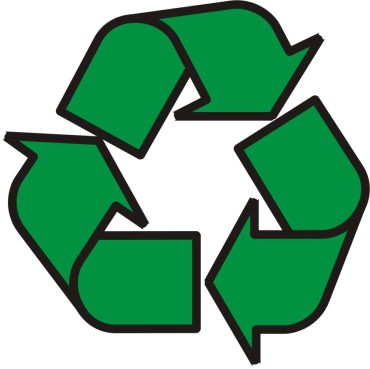Recycle
 Bad ideas never die.
Bad ideas never die.
In particular, bad ideas in Internet policy never die. Partly, it's a newcomer problem. In the 1990s, one manifestation of this was that every newly-connected media outlet would soon run the story warning readers not to open an email with a particular subject line - for example, Join the Crew - because it would instantly infect your computer. These were virus hoaxes. At the time, emails were all plain text, and infection on opening an email was a technical impossibility. (Would that it still were.) This did end because the technology changed.
Still with us, though, are repeated calls to end online anonymity. It doesn't matter who it was this week, but there was a professorial tweet: social media should require proof of identity. This despite decades of experience and research that show that often the worst online behavior comes from people operating under their own well-known, real-world identity, and that many people who use anonymity really need it. And I do mean decades: it's 30 years since Lee Sproull and Sara Kiesler published their study of human behavior on corporate mailing lists.
This week, Konstantinos Komaitis, a senior director at the Internet Society, and 28 other Internet experts and academics sent a letter to the European Commission urging it to abandon possibly imminent proposals to require content providers such as Google and Facebook to pay "infrastructure fees" to telecommunications companies. The letter warns, as you'd expect, that bringing in such feeds upends the network neutrality rules in place in many parts of the world, including the EU, where they became law in the 2015 Open Internet Regulation.
Among prior attempts, Komaitis highlights similar proposals from 2012, but he could have as easily pointed to 2005, when the then CEO of AT&T, Ed Whitacre, said he was tired of big Internet sites using "my pipes" "for free". At the time, network neutrality was being hotly disputed.
The Internet community has long distrusted telcos. First, because the pioneers still remember their hostility to the nascent Internet and, as they will remind you at any mention of the International Telecommunications Union, because during the telcos' decades of monopoly were also decades of stagnation. A small sample of the workarounds and rule-breaking Internet founders had to adopt in Britain alone was presented at an event in 2013 that featured notable contributors Peter Kirstein, Roger Scantlebury, and Vint Cerf.
Of course, we all know what's happened since then: scrappy little Internet startups became Big Tech, and now everyone wants a piece of their wealth - governments, through taxation and telcos through changing the entire business model.
Until the EU's proposals surfaced last year, it was possible to think that this particular bad idea had finally died of old age. AT&T has changed CEOs a couple of times, and for a while in there it was owner of Time-Warner, which has its own streaming products. The fundamental issue is that the Internet infrastructure has grown up as a sort-of cooperative, in which everyone pays for their own connections and freely exchanges data with peers. In the world the telcos - and the postal services - live in, senders pay for carriage and intermediate carriers get a slice ("settlement"). Small wonder the telcos want to see that world return. (They shouldn't have been so dismissive at the beginning.)
EU telcos have been tilting at this particular wind turbine for a long time; in 2012, the European Telecommunications Network Operators Association (ETNO) called for settlement as part of a larger proposal to turn Internet governance over to the International Telecommunications Union. A contemporaneous 2012 presentation by analyst Falk von Bornstaedt argued that "sending party network pays" is the necessary future in order to provide quality-of-service guarantees.
The current EU call for this change is backed by Duetsche Telekom, Orange, Telefonica, and 13 other telcos. They have a new excuse: the energy crisis and plans for combating climate change mean they need Big Tech to share the costs of rolling out 5G and fiber optic cabling. More than half of global network traffic, they argue, is attributable to just six companies: Google, Facebook/Meta, Netflix, Apple, Amazon, and Microsoft.
It is certainly true that the all-you-can-eat model of Internet connection encourages some wastefulness such as ubiquitous Facebook trackers or constantly-connected subscription office software. Moving to "the metaverse", as Meta has $70 billion worth of hope that you will, will make this exponentially worse.
On the other hand, consider the truly undesirable consequences of changing the business model. The companies paying the telcos extra for carriage will expect in return to have their traffic prioritized. That in turn will disadvantage their competitors who don't have either that financial burden or that privileged access. Soon, what's left of the open Internet would be even more of an oligopoly, particularly with respect to high-bandwidth applications like video or virtual worlds, where network lag is the enemy of tolerable quality.
In a column (PDF), lays out the issues quite clearly and warns: 1) we may not have the tools to understand the consequences of such a change; and 2) we might not be able to unwind it if we regret it later, particularly if these companies continue to merge into even bigger and more predatory giants.
Tl;dr: Please don't do this.
Illustrations: Recycling symbol.
Wendy M. Grossman is the 2013 winner of the Enigma Award. Her Web site has an extensive archive of her books, articles, and music, and an archive of earlier columns in this series. Stories about the border wars between cyberspace and real life are posted occasionally during the week at the net.wars Pinboard - or follow on Twitter.